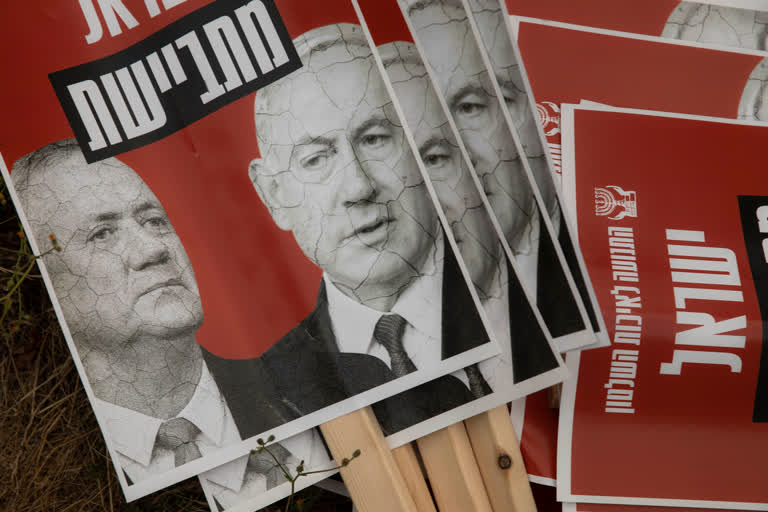Jerusalem:Israel's prime minister Benjamin Netanyahu finally saw his new government sworn in on Sunday after three deadlocked elections, a year and a half of political paralysis, and another three-day delay because of political infighting in his Likud party over Cabinet posts.
Over the weekend, both Netanyahu and his rival-turned-partner Benny Gantz announced their appointments for the new government the most bloated in Israeli history with an expected 36 ministers and 16 deputies.
Netanyahu and Gantz, a former military chief, announced last month they would be putting their differences aside to join forces to steer the country through the coronavirus crisis and its severe economic fallout.
Their controversial power-sharing deal calls for Netanyahu to serve as prime minister for the government's first 18 months before being replaced by Gantz for the next 18 months.
Their blocs will also have a similar number of ministers and virtual veto power over the other's major decisions.
Critics have already accused the government of being out of touch by creating so many Cabinet posts at a time when unemployment has soared to 25% as a result of the coronavirus pandemic.
Read more:Israeli military simulates war with Hezbollah
But because Netanyahu's bloc includes several smaller parties, he still only has a limited number of Cabinet ministries to hand out to the Likud rank and file, and he faced a mini-insurgency from angry senior members ahead of the planned swearing-in ceremony on Thursday. Unable to meet a deadline, Netanyahu asked for a delay to solve his internal party crisis.
The deal has already led to the dissolution of Gantz's Blue and White party after he reneged on his central campaign promise not to serve under Netanyahu, who has been indicted on corruption charges and faces an upcoming criminal trial.
Their much-scrutinized coalition deal could only come about after the country's Supreme Court ruled it had no legal grounds to block it.
Despite the criticism, Gantz argued that teaming with Netanyahu offered the country its only way out of the prolonged stalemate and prevented Israel from being dragged once again to another costly election that would have been its fourth in just over a year.
